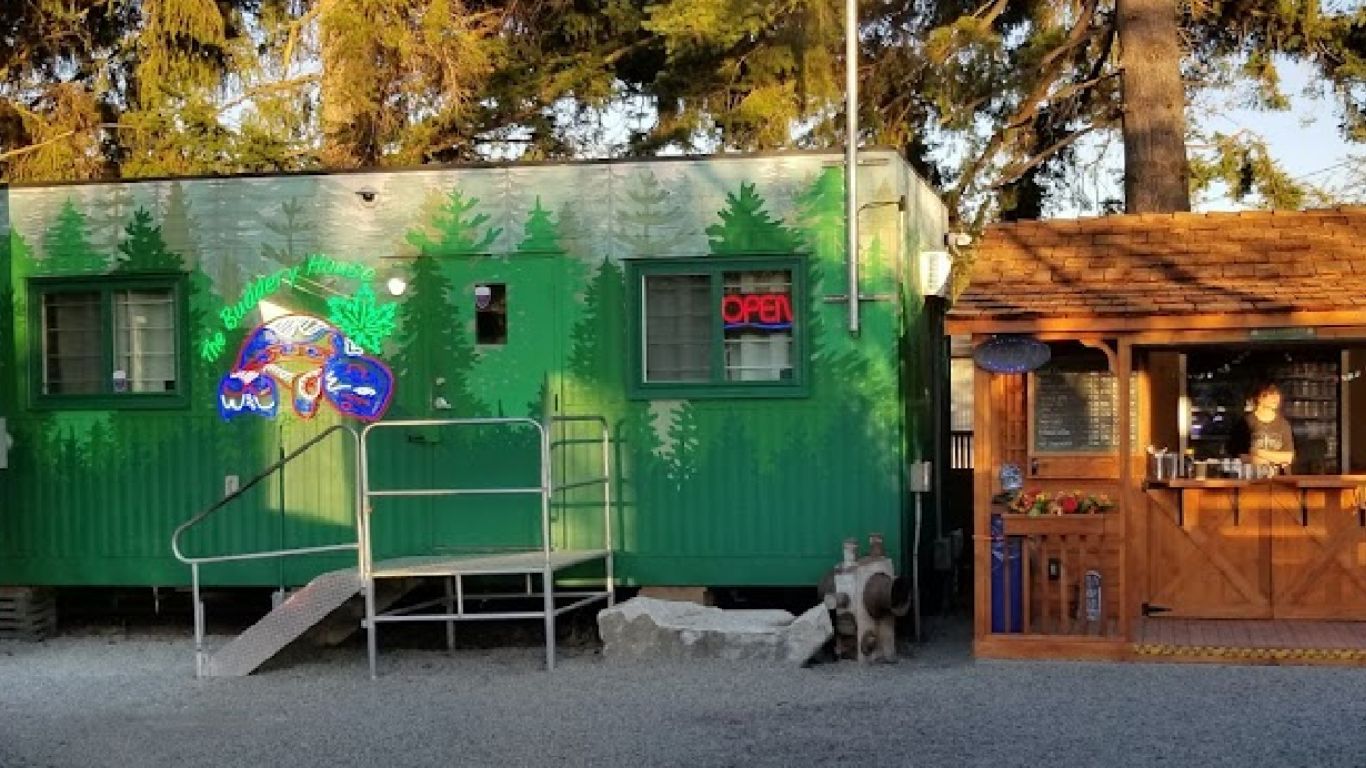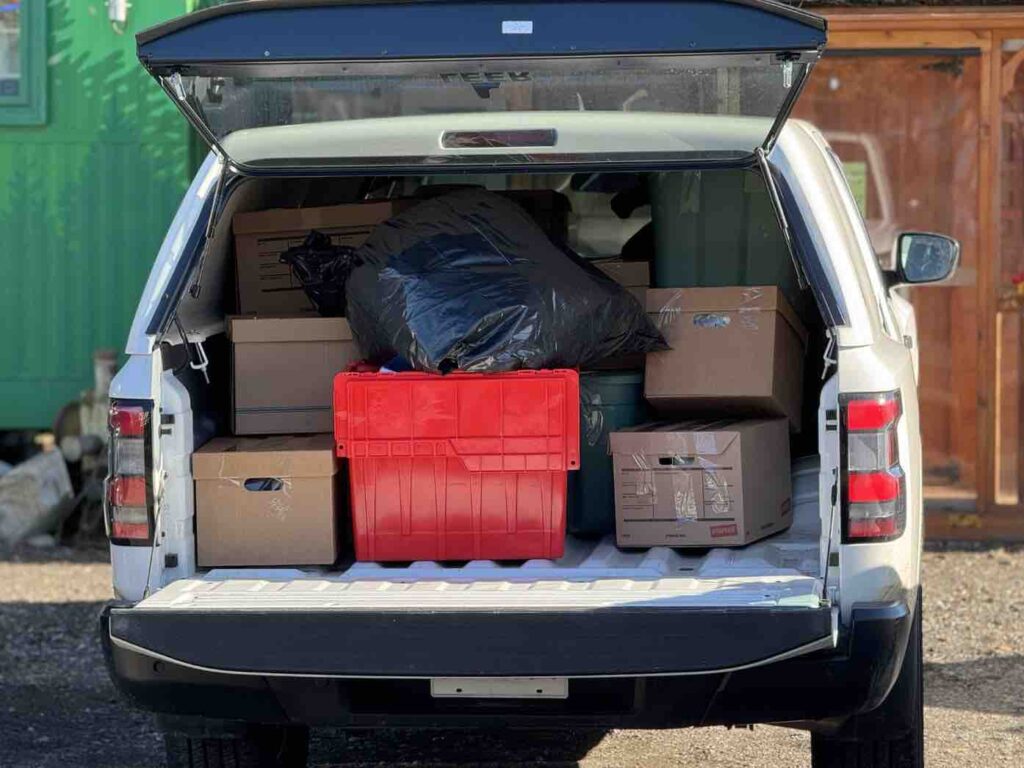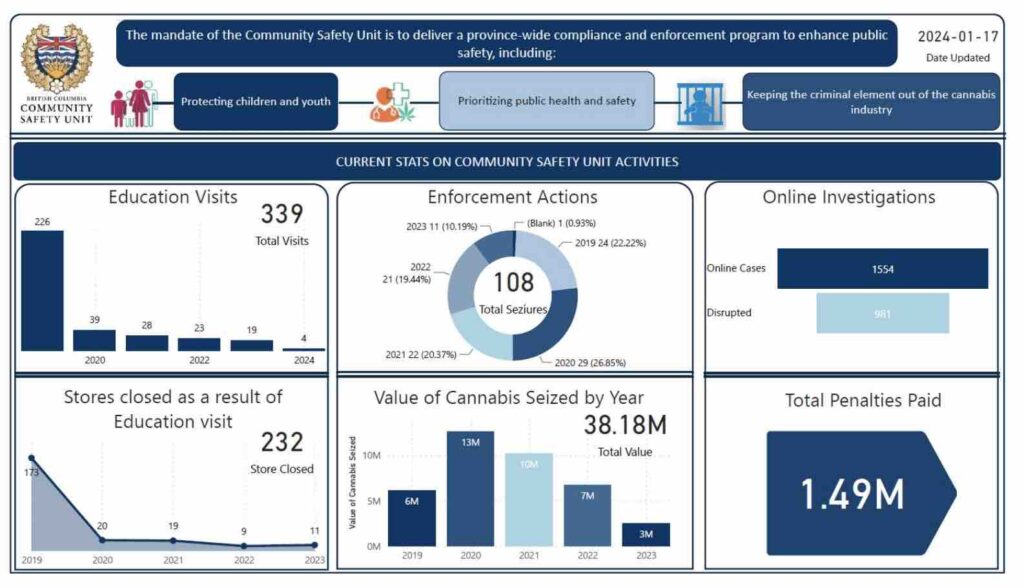
BC’s Community Safety Unit (CSU) conducted several raids of cannabis stores operating in K’ómoks First Nation on Wednesday, February 14.
K’ómoks First Nation is located on Vancouver Island near Comox.
BC’s CSU is the provincial agency charged with monitoring and enforcing the province’s retail cannabis rules and regulations. CSU investigators can conduct compliance and enforcement activities against unlicensed cannabis retailers and other illegal sellers across the province.
The raids were first reported by Rob Laurie, a lawyer who represents one cannabis operator, the Buddery House, which was raided by the CSU. Laurie says he received a call late Wednesday morning on February 14, informing him of the raid. He’s aware of at least two other cannabis stores in the area that were also raided. These make-up what he calls a “mini green mile,” similar to other concentrations of cannabis stores on First Nations land.
Although the province has long taken the position that BC’s Cannabis Act is a “law of general application” that applies to all of British Columbia, including First Nations’ land, the province’s Minister of Public Safety and Solicitor General Mike Farnworth says there is a concern that this interpretation could be “tested” by actions such as enforcement.

In his observation, Laurie says he believes the CSU is increasing enforcement actions of this kind, which he speculates could be related to an election in BC later this year. Some industry groups, as well as opposition members, have challenged the government on what they say has been a lack of enforcement of provincial rules for cannabis stores on First Nations land.
“They definitely seem to be taking a much more aggressive, and more regular action than in the years leading up to now. Is this really the biggest issue the government should be dealing with, all things considered?”
Note: The Comox Valley Record reported that two of these stores, the Buddery House and 3420 Cannabis reopened on February 15.
In Parliament last year, BC Minister of Public Safety and Solicitor General Mike Farnworth said that the CSU has also conducted nine enforcement actions on First Nations reserves in the province, seizing about $12 million worth of products.
The province also issues fines to illicit cannabis stores if they refuse to close after several warnings and/or seizures. So far, the CSU has issued at least 58 notices of administrative monetary penalty with proposed penalties totalling approximately $39.9 million, with only about $1.45 million of these penalties already collected.
As of January 2024, the CSU has conducted 339 educational visits, and as a result, 232 unlicensed stores have closed. CSU has investigated 1554 websites involved in the illegal sale of cannabis and has disrupted 981 of those websites.
Under BC’s Cannabis Control and Licensing Act, there are three types of orders issued by the Director of the Community Safety Unit (CSU) with respect to the issuance of administrative monetary penalties (AMPs); Concession Orders, Compliance Orders, and Reconsideration Orders.
A representative with BC’s Ministry of Public Safety and Solicitor General confirmed with StratCann via email that the CSU “conducted enforcement” on February 14, 2024, but was unable to provide information or comment on any specifics regarding action taken by the CSU. They did not answer if they had been invited to the community by K’ómoks First Nation leadership.
The representative said that BC’s Cannabis Control and Licensing Act (CCLA), is a law of general application that applies across B.C., including on lands governed by First Nations.
“All along, the aim has been to achieve voluntary compliance; however, we have been very clear that CSU will employ a progressive enforcement approach against those who continue to operate without a licence. Escalation of enforcement action is determined on a case-by-case basis and considers factors such as public safety, the integrity of the legal market, and partner and community concerns. To legally sell retail cannabis products in B.C., retailers must obtain a licence from the Liquor and Cannabis Regulation Branch (LCRB).”
K’ómoks First Nation Elected Chief & Council shared a statement with StratCann.
“The Province has moved forward with their next phase of enforcing the Cannabis Control and Licensing Act (CCLA). While they previously focused on off-reserve cannabis shops not compliant with the Act, as of late 2023, they are now prioritizing stores on First Nations lands across the province.
“Last month, the Province’s Community Safety Unit (CSU) visited the unregulated cannabis businesses on our Reserve. They shared educational materials about the CCLA and how these businesses can become compliant with Section 119 of the Act.
“The CCLA is a law of general application. Any laws of general application also apply on Reserves.
“Today, the CSU started confiscating unlicensed product from the unregulated cannabis shops on Reserve.
“We understand that the CSU’s actions today impact our members and their livelihood. K’ómoks did not have a say in the Province’s actions. The Province is enforcing their law, as is their jurisdiction.
“The cannabis market can provide significant opportunities for First Nations communities. As the Cannabis Control and Licensing Act is designed now, it’s hard for First Nations to participate. Progress to amend legislation has been slow.
“It is our job as elected leadership to represent our people and advocate for our right for self- governance. We will continue to work on this issue to find a resolution, but it will take time. Our best course of action is to retain legal and business expertise to lobby the government to amend legislation. This will take many months of dedicated effort and community engagement. We plan to work with store owners on Reserve and consult with our community to find a path forward that works for our Nation.”
StratCann also reached out to three of the targeted cannabis stores for comment. None were available as of press time.
This article has been edited to include comments from K’ómoks First Nation Elected Chief & Council.












